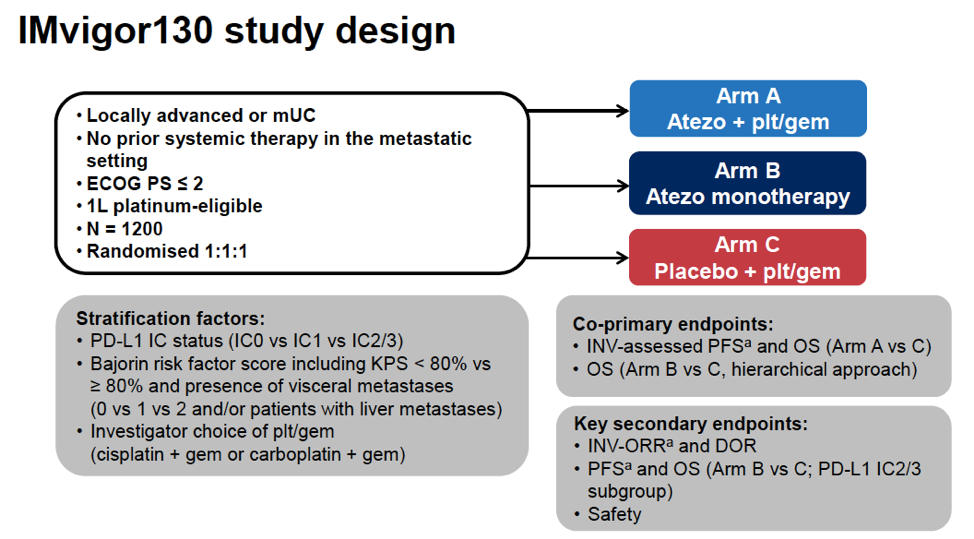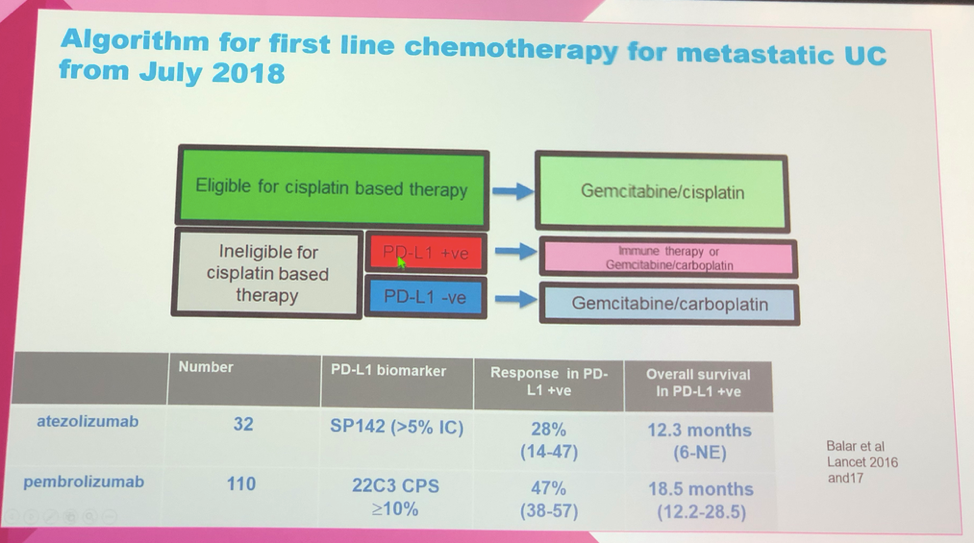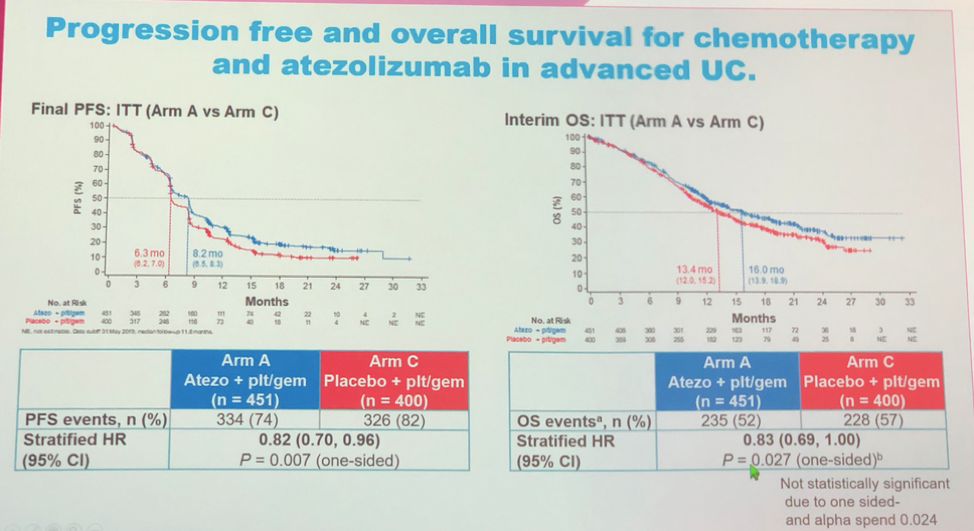Barcelona, Spain (UroToday.com) Thomas Powles, MBBS, discussed the results presented in a prior ESMO 2019 session of the IMVigor130 study of atezolizumab as monotherapy or in combination with platinum chemotherapy compared with chemotherapy alone as first line therapy in locally advanced or metastatic urothelial carcinoma. Immunotherapy with either pembrolizumab or atezolizumab has been recently improved based on response rates as first-line therapy in this context in cisplatin-ineligible or cisplatin-refusing patients based on unmet clinical need in these patients for effective therapy. This data represents the first trial to show a progression-free survival (PFS) benefit for upfront immunotherapy in advanced urothelial carcinoma.

Prior to the presentation of these results, the evidence-based algorithm for first line management of non-resectable advanced urothelial carcinoma according to Dr. Powles is shown below.

Essentially, cisplatin-eligible patients should receive cisplatin. In those patients who either refuse or cannot tolerate cisplatin, carboplatin based therapy is reasonable though PD-L1 positive patients could also get either pembrolizumab or atezolizumab as mentioned above.
Dr. Powles found the combination of immunotherapy and chemotherapy compelling but does not believe this combination will be the accepted standard of care until the overall survival data mature.
Regarding the use of atezolizumab monotherapy, Dr. Powles noted that cisplatin-eligible patients were included in the atezolizumab only arm. Until a subgroup analysis of the cisplatin-eligible patients is done, it will be difficult to justify the use of atezolizumab for ALL patients in the first line. He does, however, support using atezolizumab based on this data and IMVigor120 results as first line therapy in the cisplatin-ineligible patient population.
Dr. Powles then noted that though high levels of PD-L1 expression and evidence of a “CD8 Inflamed phenotype” enrich for response to atezolizumab especially in the neoadjuvant setting, the lack of PD-L1 expression does not favor chemotherapy. It is unclear why immunotherapy in general does better in this patient population relative to chemotherapy.
Despite the caveats of waiting for overall survival data for the atezolizumab + platinum chemotherapy and a cisplatin-specific subgroup analysis for atezolizumab monotherapy before firmly deciding on these modalities as a superior first line option in advanced urothelial carcinoma, Dr. Powles overall believes that atezolizumab is active in urothelial carcinoma and has a reasonable likelihood of being incorporated as a first line regimen for this disease.
Presented by: Thomas Powles, MBBS, Professor of Genitourinary Oncology and Lead for Solid Tumor Research at Barts Cancer Institute, Director of Barts Cancer Centre, London, United Kingdom
Written by: Alok Tewari, MD, PhD, Medical Oncology Fellow at the Dana-Farber Cancer Institute, at the 2019 European Society for Medical Oncology annual meeting, ESMO 2019 #ESMO19, 27 Sept – 1 Oct 2019 in Barcelona, Spain
